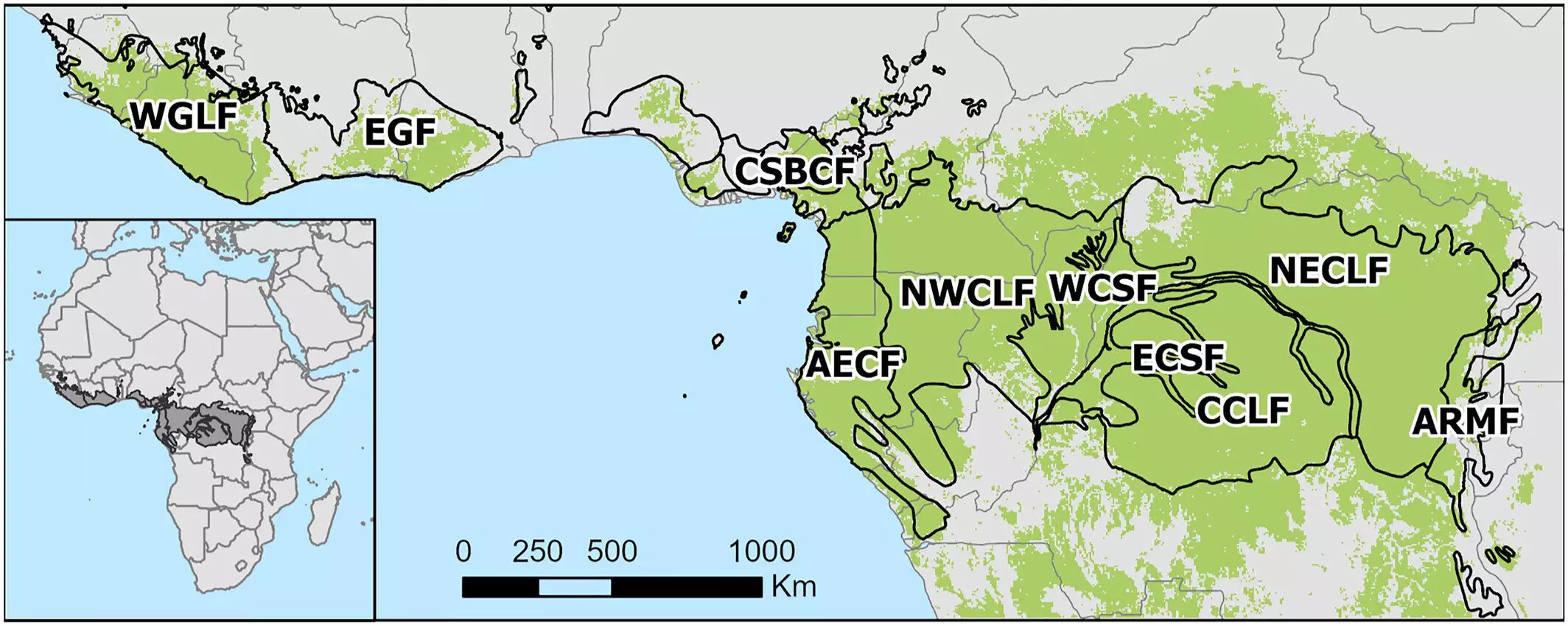A recent study has shed light on the alarming increase in the number of forest fires in West and Central Africa’s wet, tropical forests. Over the course of 18 years, the frequency of active fires has doubled, with a significant rise observed in the Congo Basin. The surge in forest fires can be attributed to a combination of factors, including rising temperatures, dry conditions, and human activities such as deforestation. This worrying trend is expected to persist based on current climate projections. The study also emphasizes that wet forest fires in other regions, such as the U.S. Pacific Northwest and the Amazon, should not be overlooked.
For decades, scientists have underestimated the importance of fire in wet, tropical forests like those in Africa. Due to the smaller scale of fires in these regions compared to dry woodlands and savannas, limited research has been conducted on tropical forest fires. However, recent studies in the Amazon have challenged this perception, prompting experts to reconsider the role of fire in wet forests. According to Michael Wimberly, an ecologist at the University of Oklahoma who led the study, it is essential to recognize the susceptibility of wet forests to fires and acknowledge the significant impact of climate change on forest fire activity.
Published in Geophysical Research Letters, the study conducted by Wimberly and his team marks the first comprehensive analysis of fire patterns in wet African forests. By analyzing satellite imagery from 2003 to 2021, the researchers identified a clear upward trend in fire frequency. Particularly notable increases were observed in the Northwest Congolian Lowland Forests, where the number of active fires surged by 400 per 10,000 square kilometers annually. Moreover, the study revealed a strong correlation between fire occurrences and high temperatures, as well as vapor pressure deficit, indicating plant water stress.
The study’s findings offer valuable insights into how climate change could amplify forest fire activity in African tropical forests, especially during El Niño years. The researchers emphasize the importance of addressing fires at forest edges to prevent detrimental feedback loops. Forest edges, exposed to high levels of human activity and deforestation, are more vulnerable to fires due to a drier microclimate and increased presence of invasive species. A forest affected by fire is at greater risk of reduced canopy cover and fragmentation, further escalating its susceptibility to future fires.
Despite being overlooked in the past, tropical forest fires are poised to become a growing concern in the years ahead. As climate change continues to impact forest ecosystems, the risk of fires in wet, tropical forests is expected to rise. It is crucial for policymakers, conservationists, and local communities to prioritize fire prevention strategies and sustainable forest management practices to safeguard these vital ecosystems. By addressing the root causes of forest fires and mitigating their impact, we can work towards a more resilient and sustainable future for wet tropical forests worldwide.


Leave a Reply